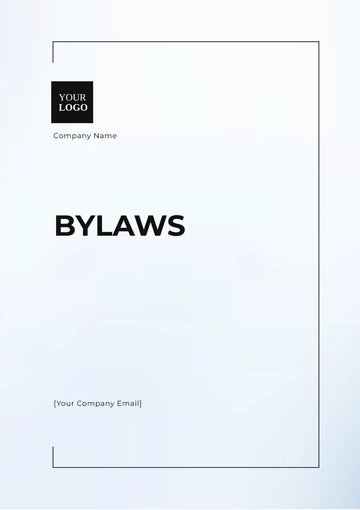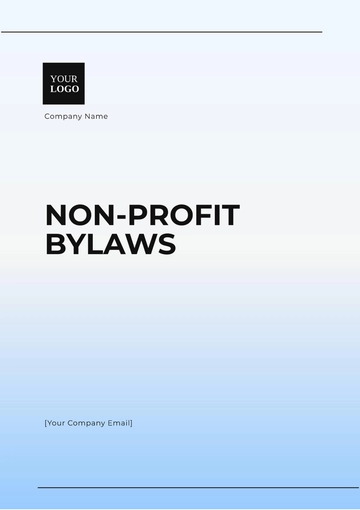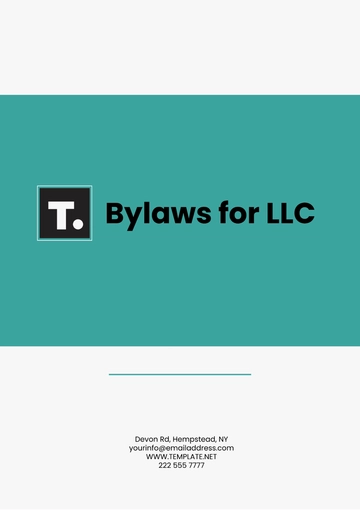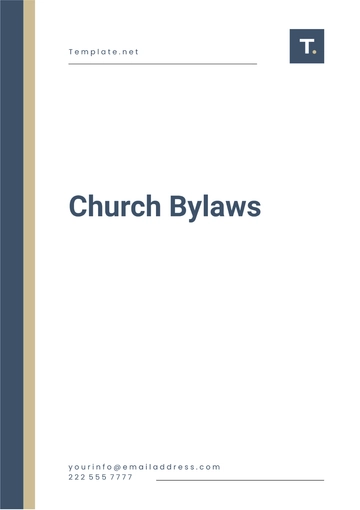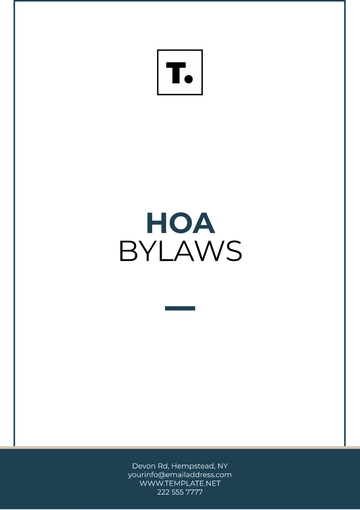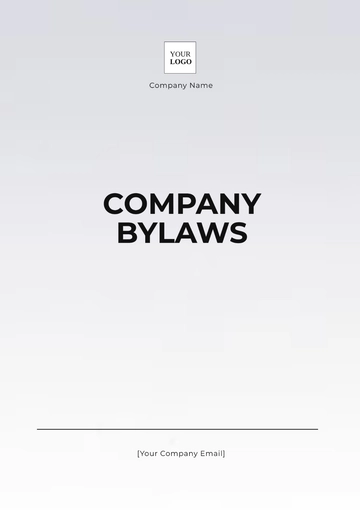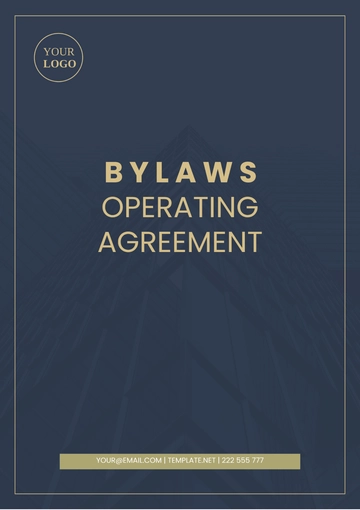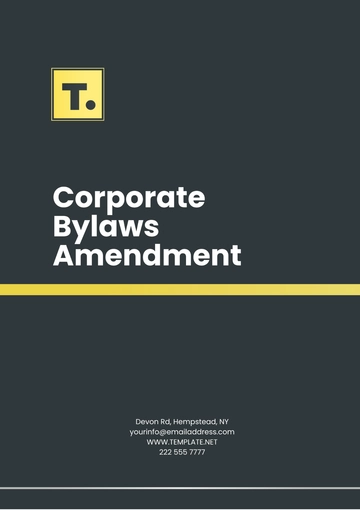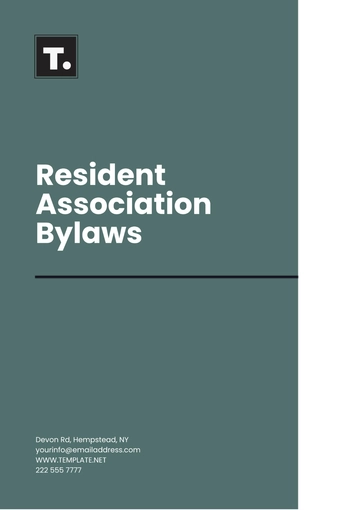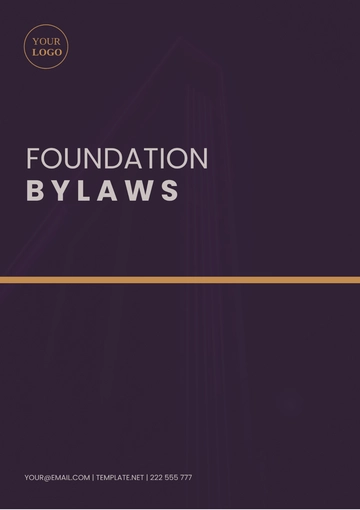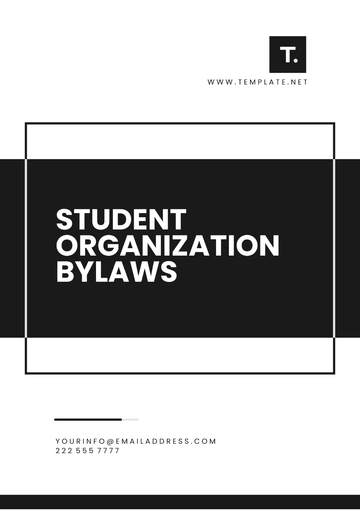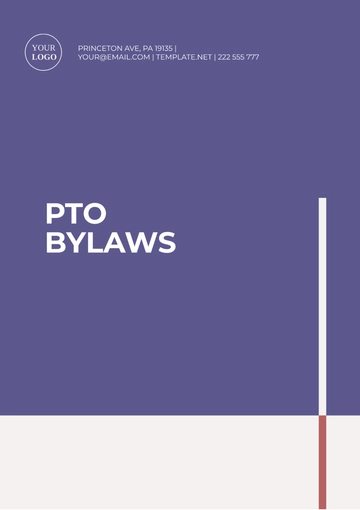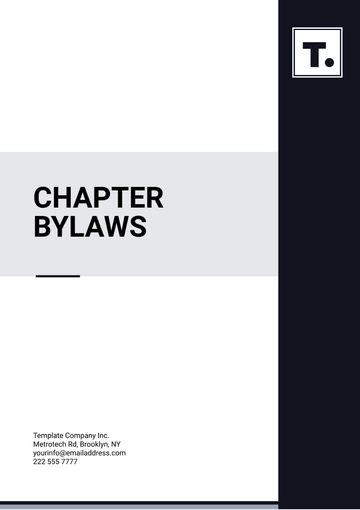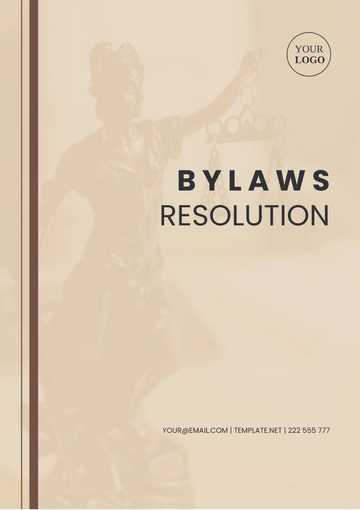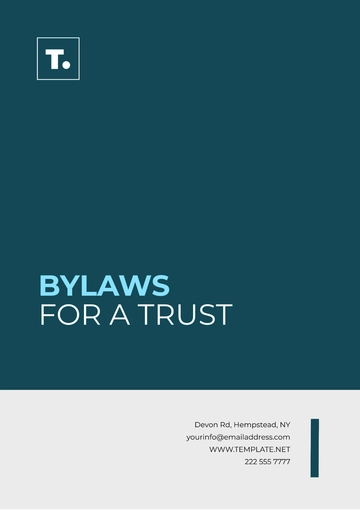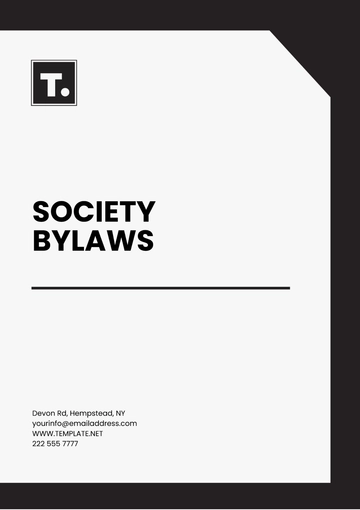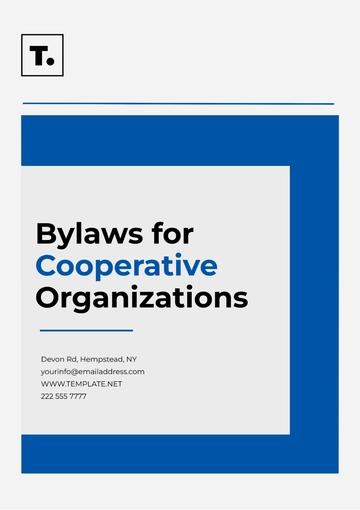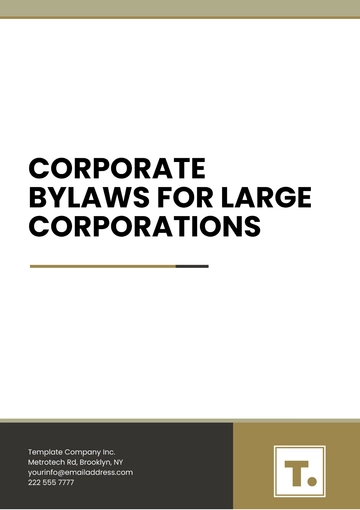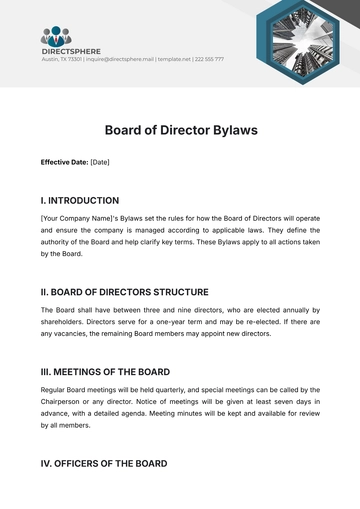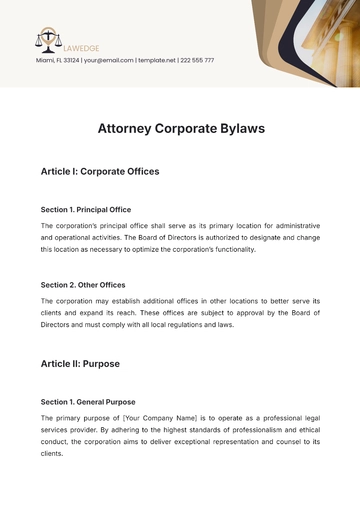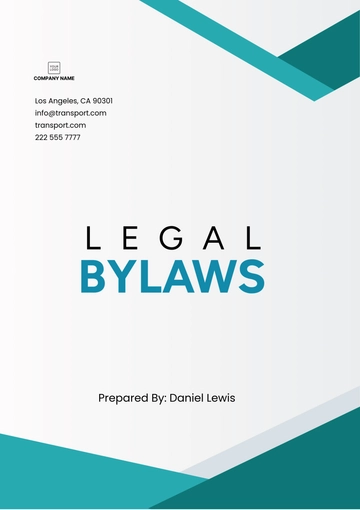Free Small Business Bylaws

Article I: Name and Purpose
1.1 Name
The name of this organization shall be [Your Company Name] (hereinafter referred to as the "Company").
1.2 Purpose
The purpose of these Bylaws is to establish a comprehensive framework for governing the internal affairs and operations of [Your Company Name]. These Bylaws are designed to promote transparency, accountability, and effective decision-making among shareholders, employees, stakeholders, and other relevant parties to ensure the smooth functioning and long-term success of the business.
Article II: Membership
2.1 Eligibility
Membership in the Company is open to individuals or entities who meet the eligibility criteria as outlined in the Company's Membership Policy. Eligible members may include individuals aged 18 and above, entities registered in [Jurisdiction], and employees with a minimum tenure of six months.
2.2 Rights and Privileges
Members shall have the right to participate in meetings, vote on important matters, access relevant information, and attend educational workshops and seminars as determined by the Board of Directors. The rights and privileges of members shall be upheld and protected per these Bylaws and applicable laws.
2.3 Termination
Membership may be terminated for reasons such as non-payment of dues, violation of the Code of Conduct, or repeated failure to attend mandatory meetings or events as outlined in the Membership Policy. Procedures for termination and appeal rights shall be outlined in the Membership Policy.
Article III: Board of Directors
3.1 Composition
The Board of Directors shall consist of seven (7) directors elected by the members at the Annual General Meeting. The composition of the Board shall reflect diversity, expertise, and a commitment to the best interests of [Your Company Name] and its stakeholders.
3.2 Duties and Responsibilities
The Board of Directors shall have the ultimate responsibility for the strategic direction, financial oversight, and governance of [Your Company Name]. Specific duties and responsibilities of directors, including fiduciary duties, conflict resolution, and ethical standards, shall be outlined in the Director's Handbook.
3.3 Meetings
The Board shall meet at least six (6) times per year and as needed to address urgent matters. Meetings may be held in person, virtually, or through teleconference, with adequate notice provided to directors. Minutes of meetings shall be maintained for record-keeping and transparency.
Article IV: Officers
4.1 Positions
The officers of the Company shall include a President, Vice President, Secretary, and Treasurer, each with specific duties and authority as outlined in the Officer Roles and Responsibilities document. Additional officers or committees may be established as deemed necessary by the Board.
4.2 Election and Term
Officers shall be elected by the Board of Directors and serve a term of two (2) years, with the option for re-election. The election process shall be fair, transparent, and under the Bylaws and applicable policies.
4.3 Removal
An officer may be removed from office by a majority vote of the Board of Directors for cause, such as misconduct, negligence, or failure to fulfill duties. Procedures for the removal and replacement of officers shall be outlined in the Officer Removal Policy.
Article V: Meetings
5.1 Types of Meetings
The Company shall hold regular meetings of the members, Board of Directors, and committees as necessary to conduct business. Meetings may include Annual General Meetings, Special Meetings, Committee Meetings, and Emergency Meetings as required.
5.2 Notice
Notice of meetings shall be given to members, directors, and officers in writing or electronically at least [Notice Period] before the meeting. The notice shall include the agenda, date, time, and location or virtual meeting link.
5.3 Quorum
A quorum for meetings shall consist of 50% of the members, directors, or committee members eligible to vote. Quorum requirements ensure that decisions are made with adequate representation and participation.
Article VI: Financial Management
6.1 Budget
The Board of Directors shall approve an annual budget outlining anticipated revenues, expenses, capital investments, and financial goals for [Your Company Name]. The budgeting process shall be transparent, inclusive, and aligned with the strategic objectives of the business.
6.2 Accounting and Reporting
The Treasurer shall maintain accurate financial records under generally accepted accounting principles (GAAP) and prepare regular financial reports for review by the Board and members. Financial reports shall include balance sheets, income statements, cash flow statements, and other relevant financial information.
6.3 Audits
An independent audit of the Company's financial statements shall be conducted annually or as required by law. The audit shall ensure compliance with regulatory requirements, assess financial performance, and provide recommendations for improvement.
Article VII: Amendments
7.1 Proposal
Any member or director may propose amendments to these Bylaws in writing to the Board of Directors. Proposed amendments shall be reviewed, discussed, and voted upon at a meeting of the members or directors.
7.2 Approval
Amendments to these Bylaws shall be approved by a two-thirds (66.67%) vote of the members or directors at a meeting where a quorum is present. Amendments shall be documented, communicated to all stakeholders, and incorporated into the revised Bylaws.
Article VIII: Dissolution
8.1 Procedure
In the event of dissolution, the assets of the Company shall be distributed to a charitable organization dedicated to [specific purpose] under applicable laws and regulations. Dissolution procedures shall be carried out responsibly, transparently, and with due consideration for the interests of creditors and stakeholders.
Article IX: Miscellaneous
9.1 Conflict of Interest
Directors, officers, and members shall disclose any potential conflicts of interest and abstain from voting on matters where a conflict exists. Conflict of Interest Policies and procedures shall be established to mitigate risks and ensure ethical conduct.
9.2 Indemnification
The Company shall indemnify directors, officers, and volunteers to the fullest extent permitted by law against liabilities arising from their official duties. Indemnification provisions shall be outlined in the Indemnification Policy and agreements with individuals.
Article X: Adoption
10.1 Adoption
These Bylaws shall be adopted by a two-thirds (66.67%) vote of the members at a special meeting called for that purpose. The adoption process shall include review, discussion, and approval of the Bylaws under the procedures outlined herein.
These Bylaws are hereby adopted and effective as of [Effective Date].
- 100% Customizable, free editor
- Access 1 Million+ Templates, photo’s & graphics
- Download or share as a template
- Click and replace photos, graphics, text, backgrounds
- Resize, crop, AI write & more
- Access advanced editor
Discover a versatile Small Business Bylaws Template on Template.net. Our template is designed to streamline small business operations by providing a clear framework for governance. It's editable, allowing you to customize it according to your business structure and requirements. Whether you need to define roles, establish decision-making processes, or outline financial procedures, our AI Editor Tool makes editing simple and efficient.
